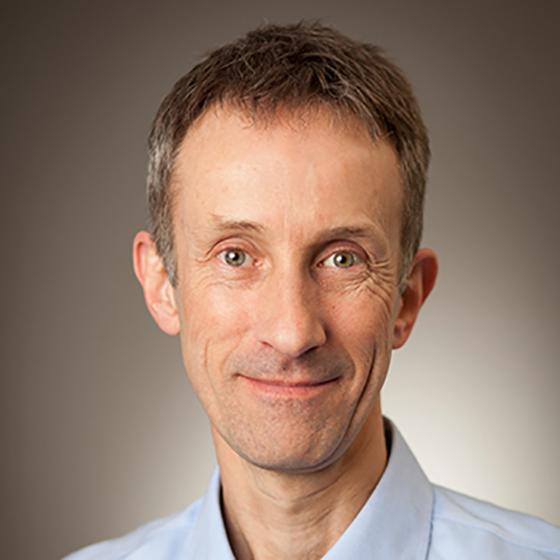
- Graduate Field Affiliations
- Applied Mathematics
- Computational Science and Engineering (minor)
- Computer Science
- Electrical and Computer Engineering
- Mathematics
- Operations Research and Information Engineering
- Systems Engineering
Biography
Adrian Lewis received his B.A., M.A., and Ph.D. degrees from Cambridge University, U.K. After faculty positions at the University of Waterloo and Simon Fraser University in Canada, he joined Cornell University in 2004 as a Professor in the School of Operations Research and Information Engineering, where he completed a three-year term as Director in 2013. His research concerns nonsmooth optimization and variational analysis. He has authored nearly 100 refereed publications and a book, and he is Co-Editor of Mathematical Programming. He received the 1995 Aisenstadt Prize, the 2003 Lagrange Prize, and a 2005 Outstanding Paper Prize from SIAM, and he is a SIAM Fellow. He was an invited section speaker at the 2014 International Congress of Mathematicians in Seoul.
Research Interests
Professor Lewis’s research concerns the interplay between the mathematical theory of variational analysis and its practical application to concrete models in science and engineering, including the design and analysis of computational algorithms for nonsmooth optimization. He is particularly interested in optimization problems involving eigenvalues, such as robust control and pseudospectral sensitivity. Most recently his interests have turned to semi-algebraic geometry as a model for generic structure in nonsmooth optimization, leading to a fascinating blend of variational analysis, classical mathematics, numerical computation, and applied modeling.
- Algorithms
- Optimization
Teaching Interests
At the undergraduate level, Professor Lewis’s primary focus has been on linear optimization: the formulation of linear programming models (using the modeling language AMPL), their solution by the simplex method, sensitivity analysis, duality, network programming, and applications such as resource allocation and production planning. Professor Lewis also teaches the mathematical foundations of linear optimization at the PhD level, as well as PhD courses on the theory and computational practice of nonlinear optimization, and on convex and variational analysis.
Service Interests
Lewis serves as Co-Editor of Mathematical Programming and as Associate Editor for Mathematics of Operations Research and for Set-Valued Analysis. He also served extended terms on several SIAM Editorial Boards: the Journals on Optimization, on Control and Optimization, and on Matrix Analysis, and the series SIAM/MPS Monographs on Optimization. He served five years as Treasurer of the Society for the Foundations of Computational Mathematics, in particular helping to lead the 2009 organization (and NSF funding) for a large-scale Special Semester at the Fields Institute in Toronto.
Select Publications
-
Bolte, J., A. Daniilidis, Adrian S. Lewis. 2011. “Generic optimality conditions of semi-algebraic convex programs.” Mathematics of Operations Research 36 (1): 55-70.
-
Burke, J. V., D. Henrion, Adrian S. Lewis, M. L. Overton. 2006. “Stabilization via nonsmooth, nonconvex optimization.” IEEE Transactions on Automatic Control 51 (11): 1760-1769.
-
Borwein, J M., Adrian S. Lewis. 2006. Convex Analysis and Nonlinear Optimization. (2nd) : 310. New York, NY, United States:Springer.
-
Dontchev, A L., Adrian S. Lewis, R T Rockafellar. 2002. “The radius of metric regularity.” Transactions of the American Mathematical Society 355 (2): 493-517.
-
Lewis, Adrian S. 2002. “Active sets, nonsmoothness and sensitivity.” SIAM Journal on Optimization 13 (3): 702-725.
Select Awards and Honors
- Section Lecturer at the 2014 International Congress of Mathematicians in Seoul 2014
- Fellow (Society for Industrial and Applied Mathematics (SIAM)) 2009
- Outstanding Paper Prize (Society for Industrial and Applied Mathematics(SIAM)) 2005
- Lagrange Prize for Continuous Optimization, (Mathematical Programming Society (MPS) and SIAM) 2003
- Aisenstadt Prize (Centre de Recherches Mathematiques, Montreal) 1995
Education
- B.A. (mathematics), Cambridge University 1983
- M.A. Cambridge University 1987
- Ph.D. (engineering), Cambridge University 1987